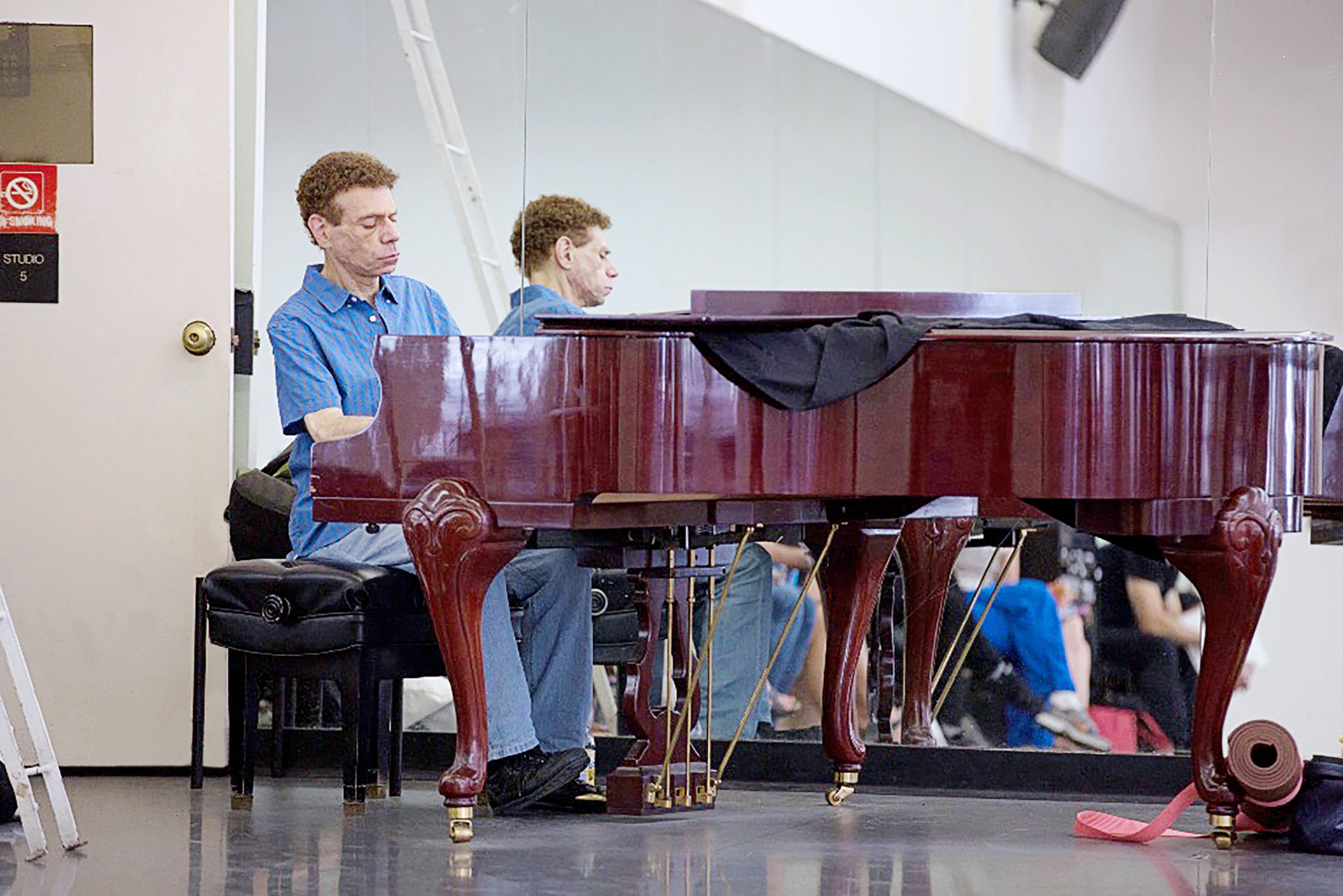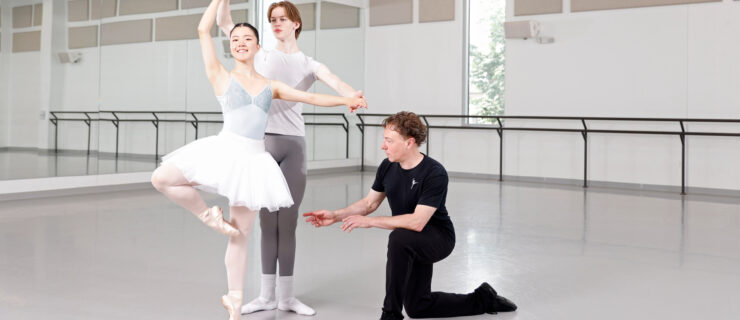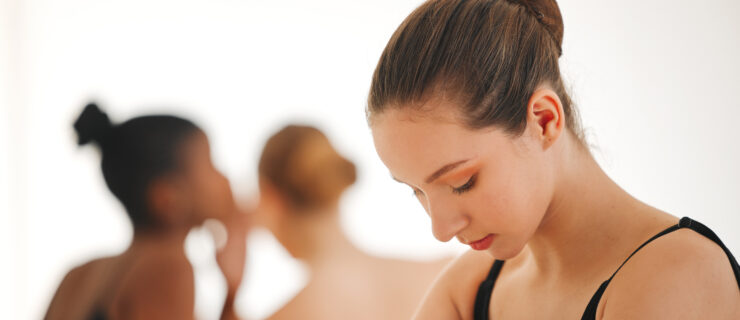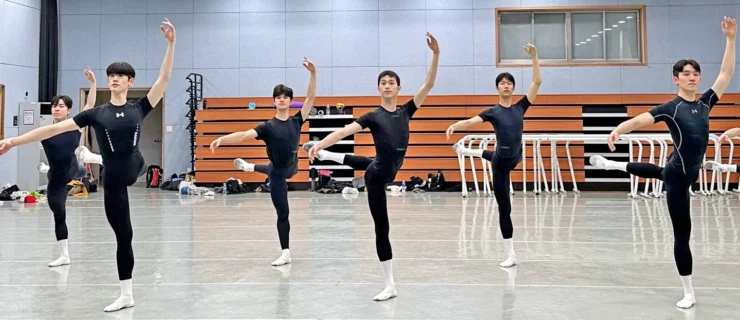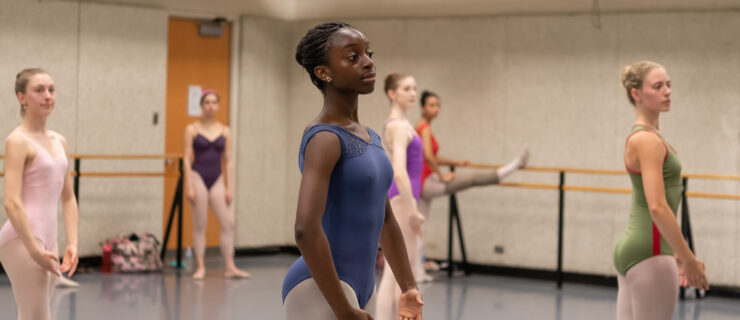The View From the Bench: 5 Class Pianists Share What It’s Like to Play for Dancers
What’s the difference between having live or recorded music in your ballet class? “It’s like the difference between dried flowers and live flowers,” says Olga Dvorovenko, a master teacher of classical ballet for over 40 years at schools such as Ballet Academy East and ABT’s Jacqueline Kennedy Onassis School. “Both are beautiful, but having a good pianist in class—it’s like having a fresh rose!”
The sensitive playing of an expert class pianist can teach you where to place an accent, show you when to jump, take your mind off the pain, and give motivation to your movement. Dvorovenko recalls pianists at the Kyiv Choreographic College, where she studied ballet in her native Ukraine, who could seemingly launch a boy into the air and hold him there with their playing. “As a student, it’s so important to hear live music,” says Dvorovenko, “to feel the vibrations in your body.” Darla Hoover, artistic director at BAE and Central Pennsylvania Youth Ballet, and soon-to-be chair of faculty at the School of American Ballet, says apps like Perfect Tempo, which adjusts speed for recorded music without affecting pitch, were a godsend during the pandemic, but she hopes they never replace live pianists. “There’s a soul with live music—having the human hand, and the piano right there in the studio,” she says.
JKO pianist Laura Tishchenko remembers Christopher Powney, artistic director at the Royal Ballet School, telling her that “the pianist is the one who can make or break the class.” In some cases, a dancer’s entire musical education comes courtesy of their class pianists. How is it possible, then, that the pianist is sometimes ignored, not spoken to, not thanked with a reverence or even acknowledged? “It’s getting better now. The ballet world has changed,” says BAE pianist Miles Fusco. “But back in the day, sometimes it felt like I wasn’t even a person—I might as well have been a radio in the corner of the room.”
Get to know your class pianist, learn their name, ask them questions. You might be surprised at the wealth of musical knowledge, artistic insight and stories they have. Here’s what five longtime class pianists with two top New York City dance schools (BAE and JKO) had to say.
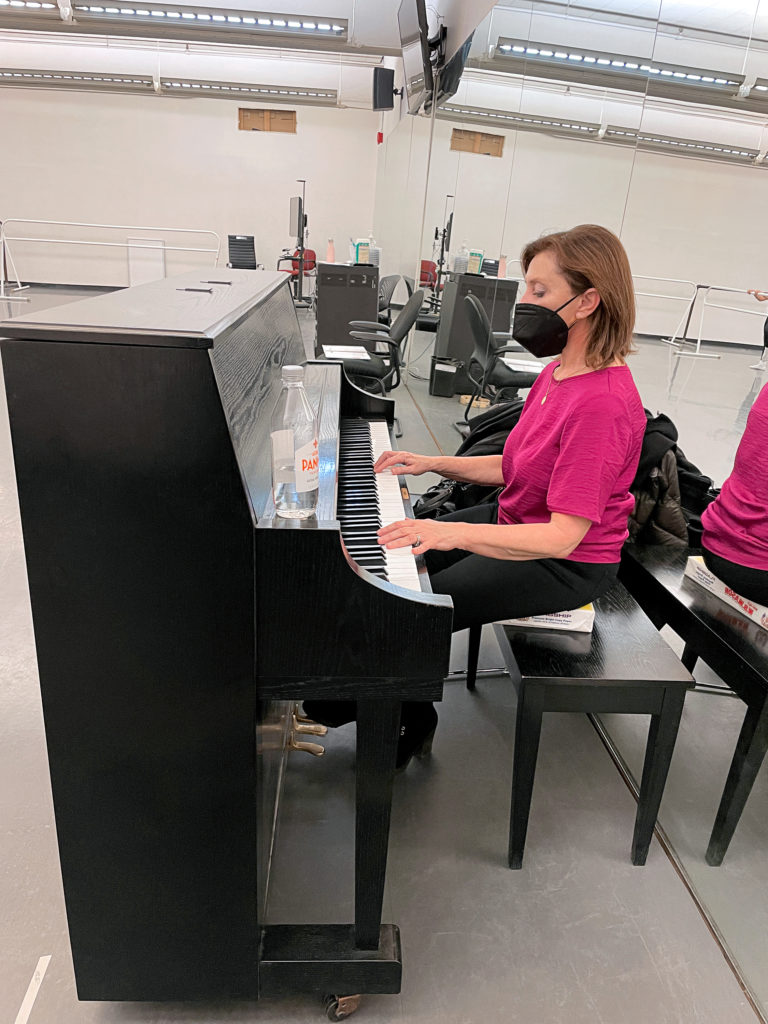
The Pianists
Michael Cherry
Experience: 42 years; Martha Graham, Eliot Feld/Ballet Tech, Limón Dance Company, Dances Patrelle, Dance Theatre of Harlem, Juilliard, Ballet Academy East, Jacqueline Kennedy Onassis School
Miles Fusco
Experience: 45 years; Carnegie Hall/Ballet Arts, Royal Winnipeg Ballet, American Ballet Theatre, New York City Ballet, Alvin Ailey, Ballet Academy East, and touring with Gelsey Kirkland, Natalia Makarova, Cynthia Gregory, Kyra Nichols, Patrick Bissell and Twyla Tharp
Rich Klessig
Experience: 30 years; Ballet Oklahoma, Alvin Ailey, 92nd Street Y, Steps on Broadway, Broadway Dance Center, Ballet Arts, Ballet Academy East
Mihoko Suzuki
Experience: 25 years; American Ballet Theatre, ABT Studio Company, Ballet Academy East, Jacqueline Kennedy Onassis School
Laura Tishchenko
Experience: 36 years; Kharkiv School of Choreography, Bolshoi Academy, San Francisco Ballet School, Dutch National Ballet Academy, Juilliard, JKO
What do you appreciate most about working with ballet students?
Mihoko Suzuki: “Watching students respond to music—that’s my reward.”
Miles Fusco: “The conversations—especially when students trust me enough to share their concerns about their study and future.”
Laura Tishchenko: “The energy exchange. Students give me energy and musical motivation.”
Rich Klessig: “I love being in a room full of people trying to better themselves. Before ballet I played in bars, hotel lobbies and restaurants.”
Michael Cherry: “I’ve always been a shy person. Being able to play for dancers lets me communicate without having to say anything. It takes me out of the isolation of being a musician.”
What bothers you?
Suzuki: “When students stand right by the piano and block my view, especially during center exercises.”
Tishchenko: “Sloppiness.”
Cherry: “Indifference to the music.”
Klessig: “Students who aren’t serious.”
Fusco: “Students who forget to thank their musician.”
Do you notice individual dancers in class?
Tishchenko: “Good pianists should always look at the dancers. That’s why I don’t have written music in front of me—it’s all in my head.”
Fusco: “I pick out the students that really respond to the music. The great dancers always spring to life as soon as they hear the first notes.”
Klessig: “Sometimes I see a dancer who I think is totally compelling and I will mention it to the teacher, who then explains all the things that are wrong with their technique.”
Cherry: “Certain dancers stand out. There’s something about them that catches my eye. I don’t know enough about the technical aspects of dance, but I can tell when they’re musical.”
Suzuki: “I can tell by the way a student moves their head, or a hand movement, that they are listening to my music. I use them as guidance—not all teachers are aware of the tempos that work for the exercise, but the dancers’ bodies give you the accurate tempo.”
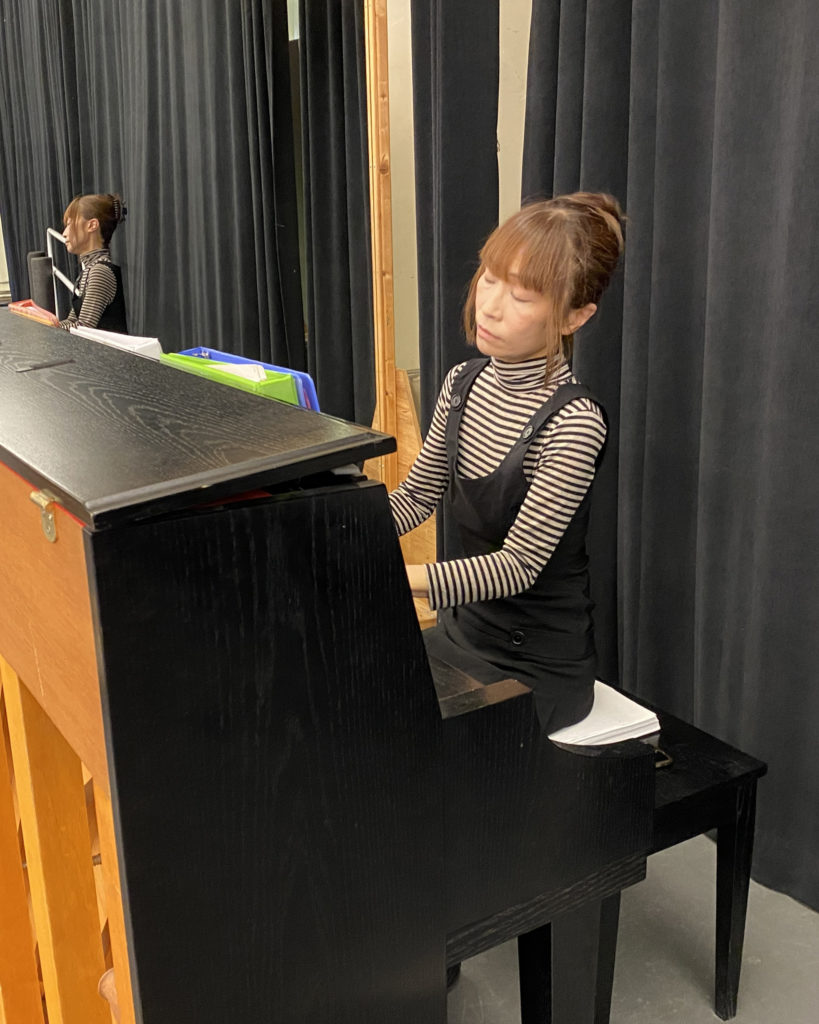
What gets you through that 10th set of tendus in the fourth class of the day?
Klessig: “I lean into the music. But if you can’t deal with repetition, you can’t be a performer.”
Suzuki: “I spot the kids who are responding to the music, because that gives me a lift.”
Fusco: “I used to play up to 10 hours a day. I started developing tendinitis and quickly learned I must play without any tension to remain healthy.”
Cherry: “I try to concentrate on what I’m playing—I get joy, good feelings, endorphins from playing the piano.”
Tishchenko: “Water and dark chocolate. Keep a dark chocolate with you at all times!”
Any advice for ballet students?
Suzuki: “As you’re working so hard, don’t forget the most important thing: Dance has to go with music.”
Klessig: “Persevere. That’s coming from someone who wasn’t a prodigy as a kid. If you want it badly enough, persevere.”
Cherry: “Be aware of all the allied arts—music, visual art, film, theater, literature—it’s all connected, it all enriches what you do.”
Fusco: “Never let anyone tell you what you can or can’t do.”
Tishchenko: “Love the music—let the music help you achieve your dreams.”
